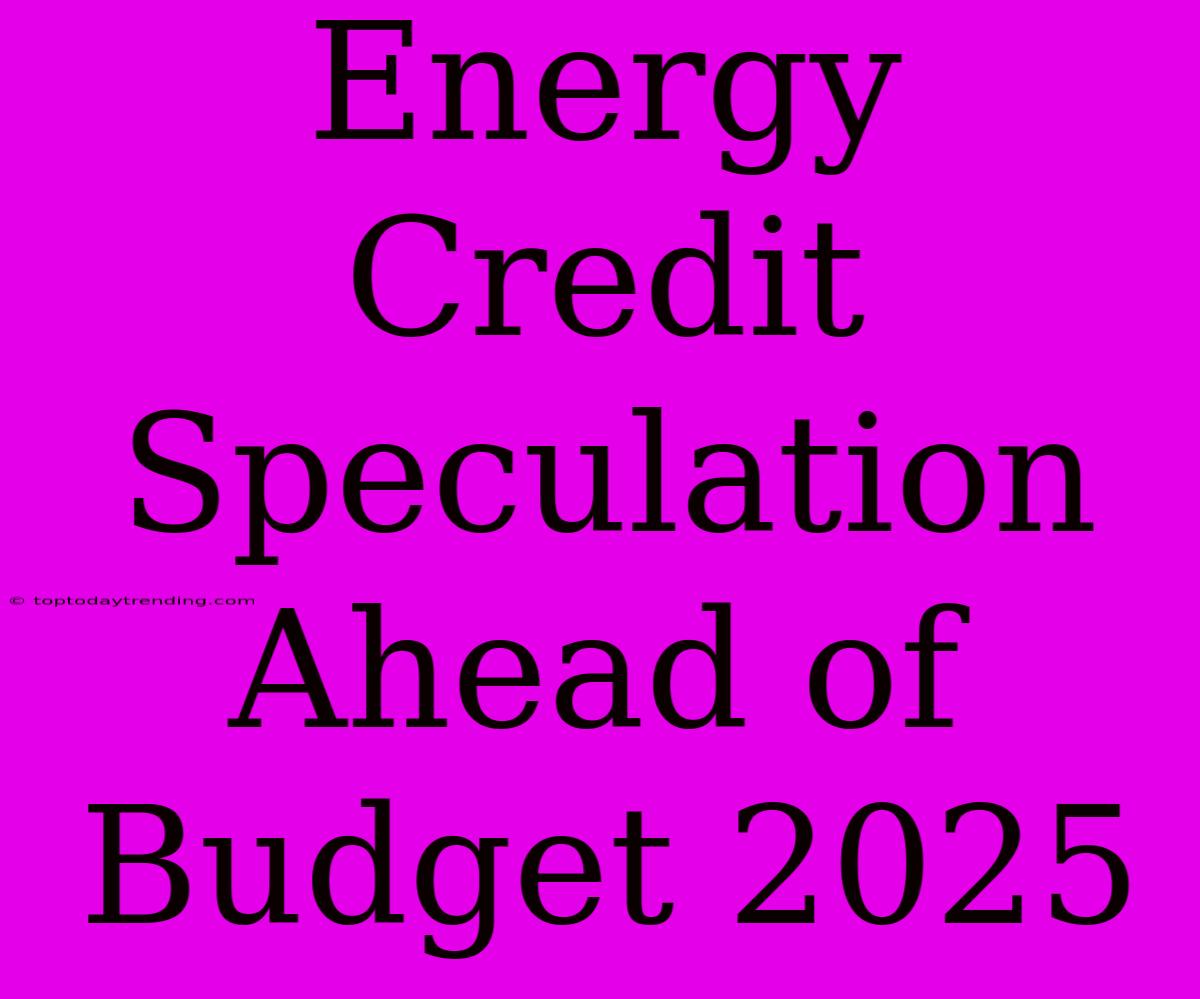Energy Credit Speculation Ahead of Budget 2025: What to Expect
The upcoming Budget 2025 has sparked intense speculation within the energy sector, particularly around potential changes to energy credit schemes. With rising energy costs and the need for sustainable solutions, the government is expected to unveil measures that could significantly impact the market. This article delves into the key areas of speculation and explores what investors and consumers can anticipate.
Key Areas of Speculation
1. Expansion of Renewable Energy Credits (RECs):
- Increased targets: The government might introduce more ambitious targets for renewable energy generation, potentially leading to a surge in demand for RECs. This could drive up their prices and encourage investment in clean energy projects.
- Enhanced incentives: Incentives like tax credits or subsidies for REC purchases could further boost their value, making renewable energy investments more appealing.
- New REC schemes: The introduction of new REC schemes focused on specific technologies, such as green hydrogen or solar thermal, could offer additional opportunities for investors.
2. Adjustments to Carbon Pricing Mechanisms:
- Carbon tax hike: An increase in the carbon tax could be on the cards, directly impacting the costs of carbon-intensive industries and encouraging them to adopt cleaner technologies.
- Emissions trading scheme: The introduction or expansion of an emissions trading scheme could create a new market for carbon credits, influencing energy market dynamics and incentivizing low-carbon practices.
- Enhanced monitoring and enforcement: Stricter regulations and improved enforcement mechanisms could make carbon pricing schemes more effective and boost their impact on energy production and consumption.
3. Focus on Energy Efficiency and Conservation:
- Energy efficiency standards: The government could introduce stricter energy efficiency standards for appliances, buildings, and industrial processes, incentivizing energy conservation and reducing overall energy demand.
- Smart grids and energy storage: Investments in smart grid technologies and energy storage solutions could enhance grid stability and optimize energy consumption, contributing to a more resilient energy system.
- Consumer rebates and subsidies: Financial incentives for adopting energy-efficient technologies or reducing energy consumption could encourage households and businesses to make sustainable choices.
Implications for Investors and Consumers
For Investors:
- Opportunities in renewable energy: Increased demand for RECs and incentives for clean energy projects could create lucrative investment opportunities in renewable energy companies, developers, and technology providers.
- Carbon market potential: The development of carbon markets, whether through emissions trading schemes or carbon offsets, could offer new investment avenues for those seeking to capitalize on the transition to a low-carbon economy.
- Focus on energy efficiency: Companies specializing in energy efficiency technologies and solutions, such as smart home devices, building automation systems, or energy management software, could see increased demand and investment.
For Consumers:
- Higher energy prices: Changes in carbon pricing or tax policies could lead to higher energy bills for consumers, necessitating smarter energy consumption habits.
- Increased adoption of clean energy: Incentives for renewable energy and energy efficiency could encourage consumers to switch to solar panels, electric vehicles, or energy-saving appliances.
- Greater awareness and engagement: The government's focus on energy sustainability could lead to greater public awareness of energy issues and promote individual actions towards reducing carbon footprints.
Conclusion
Budget 2025 presents a pivotal opportunity for the energy sector to accelerate its transition towards a cleaner and more sustainable future. The government's initiatives, particularly in the areas of renewable energy, carbon pricing, and energy efficiency, will shape the energy landscape for years to come. By staying informed about the potential changes and understanding the implications, investors and consumers can make informed decisions and navigate the evolving energy market.

